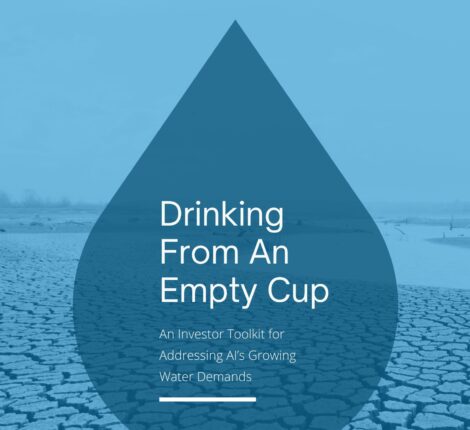The New Normal — Our CEO’s Q4 2021 Letter to Clients
The New Normal
We certainly have started 2022 with a bang. Market volatility in both equities and fixed income appears to be the path we are on, while staff shortages are more numerous and more impactful than they have been since the beginning of the pandemic. Fortunately, as in 2021, we trimmed our oversized equity positions in the first few trading days of the year in order to bring client accounts closer to their target equity allocations. We took capital gains (and some losses) so that we could make certain that portfolios accurately reflect our “buy list” stocks in the percentages we deem most attractive. We were not alone in taking profits throughout January! The market drop in January, after our rebalances, has brought most of our accounts under their equity target for the time being. We are watching the daily gyrations closely until we feel it is time to buy up “bargains” in line with our overall strategy for 2022, which we outline below.
NorthStar began 2022 with four staff members out and the resignation of a woman whom we had grown to love. Skeleton crews are not unique to our small company as evidenced by supply shortages throughout the globe and seemingly endless hold times at various companies. As of this writing, our staff members seem to be healthy, though a new crop of those who have avoided the virus appears to be rising elsewhere. I do find it ironic that after we shut down the physical office in March of 2020, it is now, after doing a lovely, Covid-friendly renovation of our physical location at 2 Harris Avenue, that five (vaccinated, masked and remote) staffers have gotten sick anyway. Welcome to the new normal.
This new normal, marked by the exhaustion of trying to anticipate the unknowns around the corner, has us all working double time. Maintaining a sense of joy and community, not to mention an excitement about the job at hand, has been a challenge that I am pleased to say we are meeting. As the Cloud gets slow and “cloudy” and electricity and internet waver on and off with wind shifts and other weather events, I am reminded of a time when notes were handwritten, letters were typed and mailed, and all NorthStar clients had their own floppy disk containing a spreadsheet of holdings. Those were the days! Now we have a team of women all over the country who zoom, write, research, think, track, and magically create together in a way that I never imagined possible. So, while much of our world feels like it is coming apart at the seams, the NorthStar women do not flee to the metaverse; rather, we hunker down, stick to our mission and put together investment portfolios that, though certainly impacted by short term volatility, will, we hope, do well over time (knowing of course, that past performance is not an indication of future performance.) We dig deeply into the companies and the outside investments we recommend, reimagining (positive or negative) our future, hopeful that we continue to have opportunities to make our diverse voices heard. We do not chase fads or run from fear. We remain committed to examining and reexamining our decisions, our opinions, and our methodology so that we stay close to our mission: to manage your investments bearing in mind their intersection with race and gender, wealth and income inequality, environmental justice, and human rights. We know that we cannot fix the problems that we come across every day in our research, but we make a wholehearted effort to do so.
Economic Update
Our economy continues to recover even as we move into the third year of the pandemic. The unemployment rate was 3.9% in December[1], just above the 3.5% rate registered right before the pandemic began. The economy has yet to regain all the jobs lost during the pandemic, but wage growth and workers’ growing comfort in finding new and better job opportunities are positive developments.
We anticipate a prolonged economic expansion, even as the Fed moves to increase interest rates in an effort to manage inflation. During Fed Chairman Powell’s testimony before Congress in early January, he noted that the long expansionary period following the Great Recession of 2008 demonstrated that a broader segment of the population benefits when the economy is allowed to run hot for longer periods. When the last administration lowered corporate taxes, the economy continued to expand without spurring inflation. Even though some believed that we had reached full employment, we observed higher levels of workforce participation among minorities, recognizing that it typically takes longer for people of color to find employment.
Unlike the period after the Great Recession, we are experiencing inflation, primarily an outgrowth of numerous system-wide disruptions triggered by the pandemic. While some level of inflation had been anticipated, we are now seeing inflation in areas of the economy that have a long-term impact on all consumers. Housing prices have risen 24% since the beginning of the pandemic[2], and rental prices have also increased.[3] We know inflation disproportionately impacts lower-income consumers, as housing expenses are a larger percentage of a low-income family’s budget.
The more persistent nature of inflation and concerns regarding higher-than-anticipated inflation have led the Fed to accelerate the winding down of its bond-buying program that was launched at the beginning of the pandemic. In addition to tapering its bond-buying program and reducing its balance sheet, the Fed has said that it anticipates raising the discount rate a few times this year[4].
The economic outlook for 2022 remains positive, with expectations for more than 3% growth[5], favorable given much lower levels of 1% – 2% growth over the last ten years. Despite a positive economic outlook for 2022, it is nearly impossible to know what the stock market will do. There are several factors to consider.
In the United States, this is an election year, and our country is deeply divided on many issues. Meanwhile, consumers are being forced to spend down any savings they may have had after last year’s fiscal stimulus, while trying to navigate a world with higher prices. The refusal of Congressional Republicans to extend the Child Care Tax Credit will certainly hurt the most vulnerable families. None of this bodes well for consumer sentiment.
Outside the United States, the rivalry and political tensions between the US and China are cause for concern because China is a major trade and business partner with the US. China is looking to assert its leadership on the world stage, especially as it relates to technological innovation. China is also seeking to expand its physical boundaries and dominance over other Asian countries in the South China Sea, challenging Western norms of how countries should operate.
The US and NATO are also confronting Russia’s desire to expand its sphere of influence Even after being warned by President Biden to cease its attacks, Russia continues conducting cyber-attacks on the US government and other US organizations. If nothing else, the pandemic has reinforced the vulnerabilities of operating in a global world, where seemingly distant problems overseas can disrupt and upend the US economy in one fell swoop.
Finally, there is the risk of the Fed moving too quickly to tighten US monetary policy, especially given the uncertainties outlined above and the ongoing transition from a pandemic to COVID-19 becoming endemic. Meanwhile, market participants are trying to anticipate the impact of inflation on corporate profits, in addition to figuring out the degree to which interest rates will rise. All of this sets the stage for what is already shaping up to be a more volatile stock market, especially in comparison to last year.
– Excerpted from NorthStar’s fourth quarter 2021 letter to clients
Sincerely,
Julie N.W. Goodridge
The forecasts, opinions, and estimates expressed in this report constitute our judgement as of the date of this letter and are subject to change without notice based on market, economic, and other conditions. The assumptions underlying these forecasts concern future events over which we have no control and may turn out to be materially different from actual experience. All data contained in this letter is from sources deemed to be reliable but cannot be guaranteed as to accuracy or completeness. All investments are subject to risk, including loss of principal. Past performance is no guarantee of future results. It is not possible to invest directly in an index.
FOR INFORMATION PURPOSES ONLY
This information includes a discussion of a number of companies and other financial market and social events. These opinions are current as of the date of this publication but are subject to change. The information provided herein does not provide information reasonably sufficient upon which to base an investment decision and should not be considered a recommendation to purchase or sell any particular security.
[1] Civilian unemployment rate (bls.gov)
[2] Will Real Estate Ever Be Normal Again? – The New York Times (nytimes.com)
[3] Housing Costs Swell, Hampering Home Buyers and Pushing Up Rents – The New York Times (nytimes.com)
[4] https://www.ft.com/content/c5f0e71f-e153-47ac-acc8-c31c2fa2a9b0
[5] Economic Forecast for the US Economy (conference-board.org)




